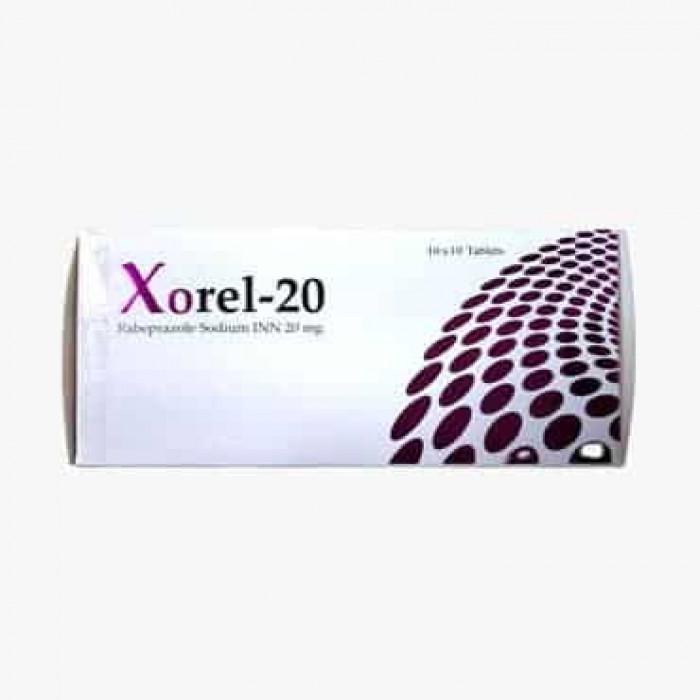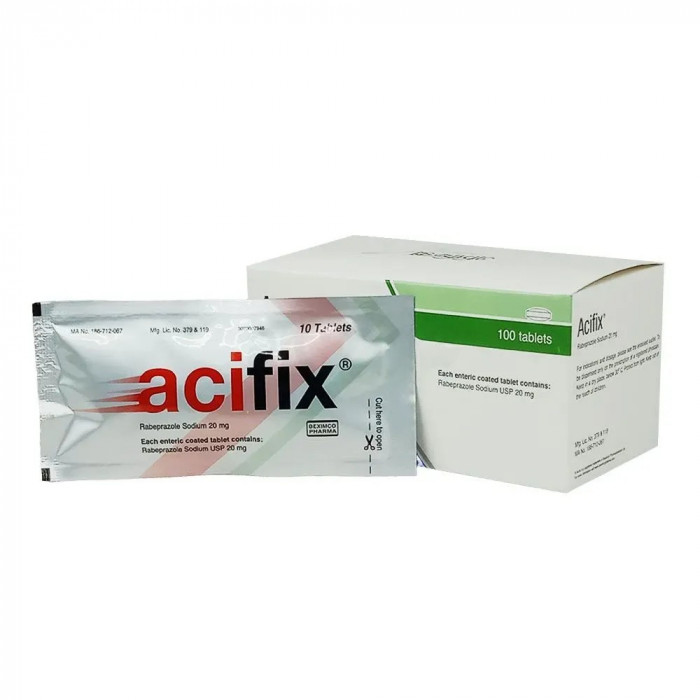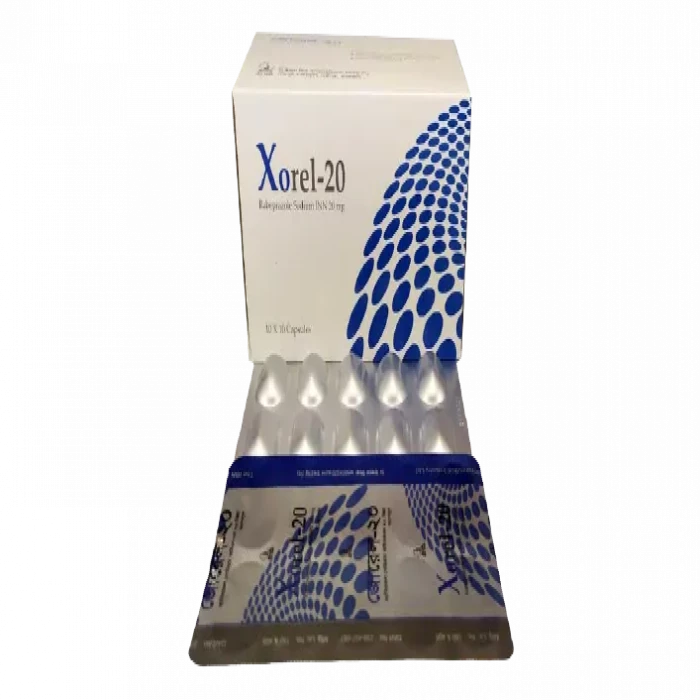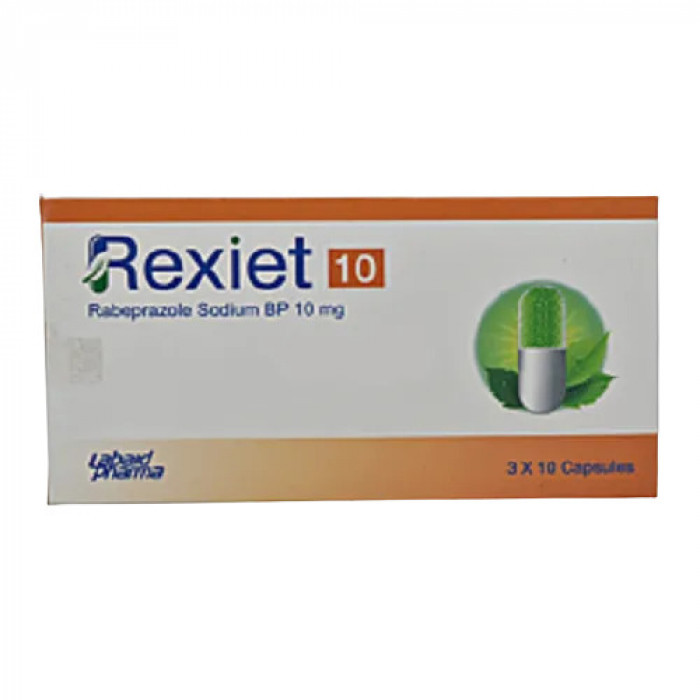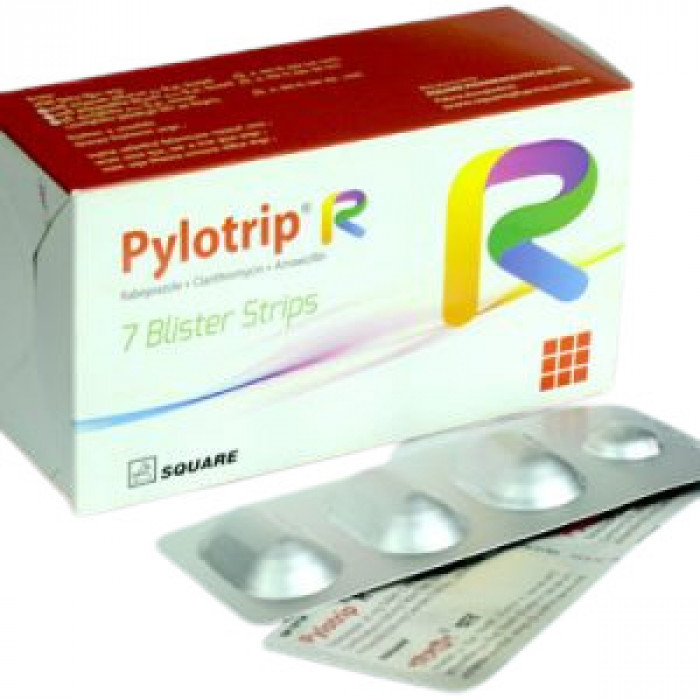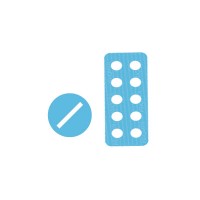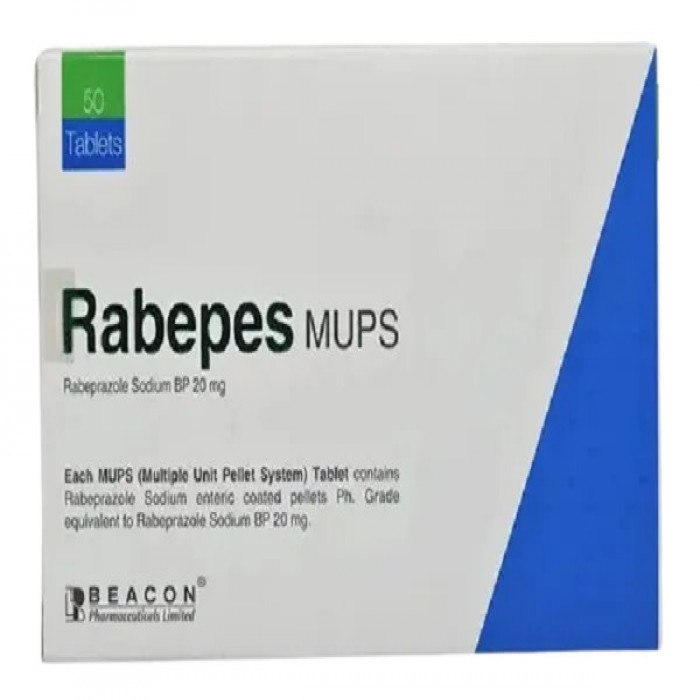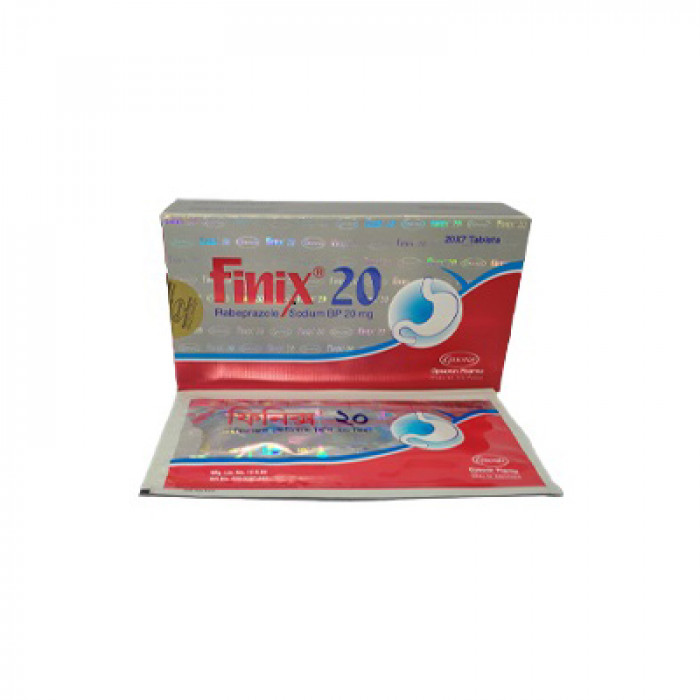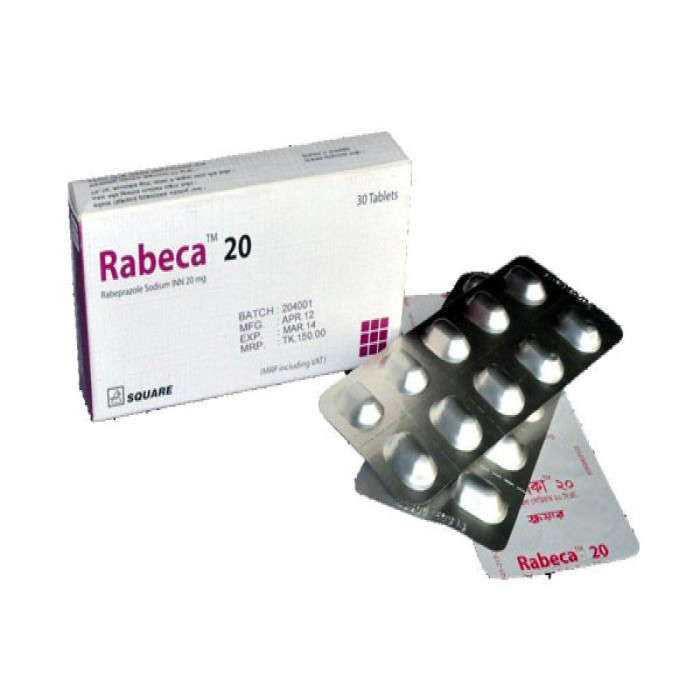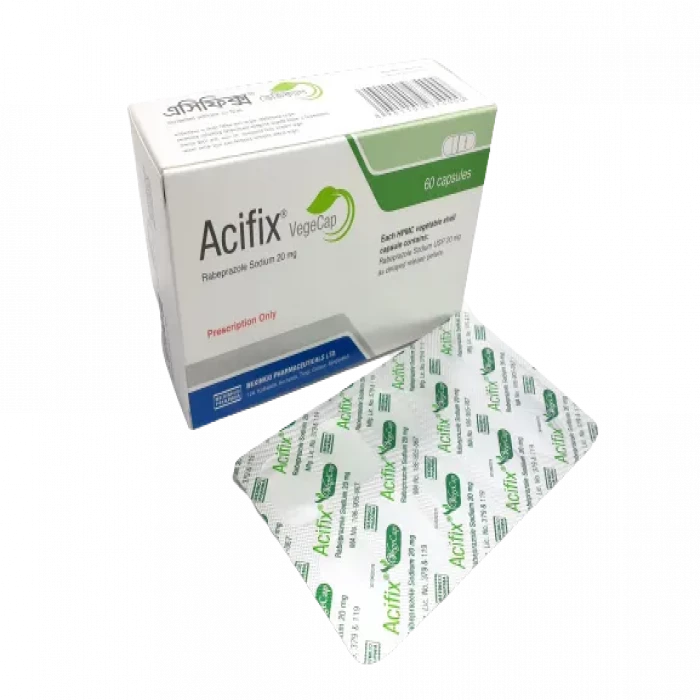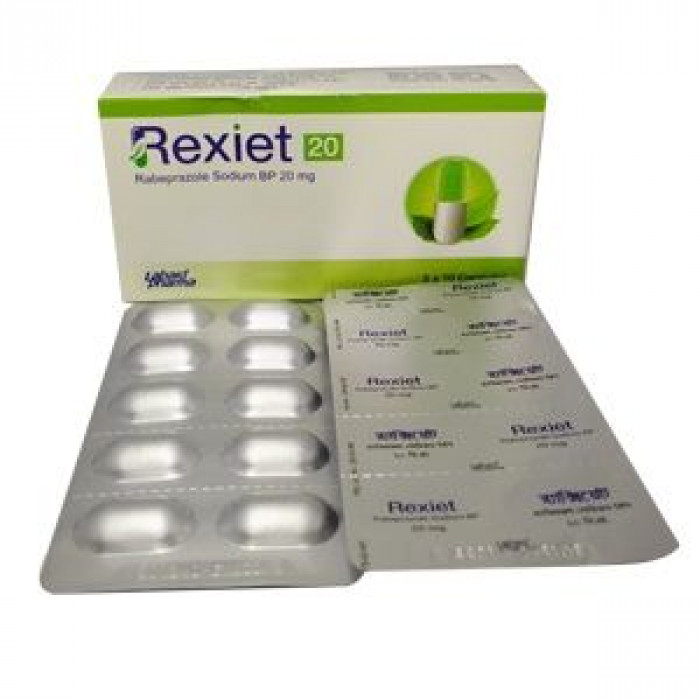
✔ 100% Authentic Product
👁️ Currently Viewing 3614
Rexiet 20mg Capsule 10Pcs
Generic Name: Rabeprazole Sodium 20 mg
Company Name: Labaid Pharma Ltd.
Discount
Price: ৳ 76
MRP:
৳
80
5%
Off

100% Genuine Products, Guaranteed

Safe & Secure Payments, Always

Fast, Secure & Efficient Delivery

Proper Packaging
 Cash on Delivery - All over Bangladesh
Cash on Delivery - All over Bangladesh Regular Delivery - 12-24 Hours, Dhaka City* Charge Tk.39-59
Regular Delivery - 12-24 Hours, Dhaka City* Charge Tk.39-59 Regular Delivery - 24-48 Hours, Other Cities* Charge Tk.99-110
Regular Delivery - 24-48 Hours, Other Cities* Charge Tk.99-110
🌙 রমযান অফার 🌙
 ফ্রি ডেলিভারিঃ - ৭৯৯ টাকা+ অর্ডারে, ঢাকা
শহরে
ফ্রি ডেলিভারিঃ - ৭৯৯ টাকা+ অর্ডারে, ঢাকা
শহরে ফ্রি ডেলিভারিঃ - ২৭৯৯ টাকা+ অর্ডারে, ঢাকার
বাহিরে
ফ্রি ডেলিভারিঃ - ২৭৯৯ টাকা+ অর্ডারে, ঢাকার
বাহিরে
📲 মোবাইল অ্যাপ অর্ডারে সাশ্রয় বেশী
-
Google Play Store থেকে ডাউনলোড
-
Apple Store থেকে ডাউনলোড
100% Genuine Products, Guaranteed
Safe & Secure Payments, Always
Fast, Secure & Efficient Delivery
Proper Packaging
 Cash on Delivery - All over Bangladesh
Cash on Delivery - All over Bangladesh Regular Delivery - 12-24 Hours, Dhaka City* Charge Tk.39-59
Regular Delivery - 12-24 Hours, Dhaka City* Charge Tk.39-59 Regular Delivery - 24-48 Hours, Other Cities* Charge Tk.99-110
Regular Delivery - 24-48 Hours, Other Cities* Charge Tk.99-110 ফ্রি ডেলিভারিঃ - ৭৯৯ টাকা+ অর্ডারে, ঢাকা
শহরে
ফ্রি ডেলিভারিঃ - ৭৯৯ টাকা+ অর্ডারে, ঢাকা
শহরে ফ্রি ডেলিভারিঃ - ২৭৯৯ টাকা+ অর্ডারে, ঢাকার
বাহিরে
ফ্রি ডেলিভারিঃ - ২৭৯৯ টাকা+ অর্ডারে, ঢাকার
বাহিরে- Google Play Store থেকে ডাউনলোড
- Apple Store থেকে ডাউনলোড
🌙 রমযান অফার 🌙
📲 মোবাইল অ্যাপ অর্ডারে সাশ্রয় বেশী
✅ Description:
Indications
- Rabeprazole gastric anti-pill is suitable for the treatment of:
- active duodenal ulcer *active benign gastric ulcer
- symptomatic erosive or ulcerative gastroesophageal reflux disease (GERD).
- Long-term treatment of gastroesophageal reflux disease (maintenance of GERD)
- Symptomatic treatment of moderate to very severe gastroesophageal reflux disease (symptomatic GERD)
- Zollinger-Ellison syndrome
- Combined with appropriate antibacterial therapy to eradicate ulcers in patients with Helicobacter pylori sick.
Pharmacology
Rabeprazole inhibits gastric acid secretion by inhibiting gastric ATPase H + / K + secretion on the surface of gastric parietal cells. Because this enzyme is considered an acid (proton) pump in parietal cells, rabeprazole has been characterized as a gastric proton pump inhibitor.
Dosage & Administration
Active Duodenal Ulcer and Active Benign Gastric Ulcer: The recommended oral dose for both bioactive duodenal ulcer and active benign gastric ulcer is 20 mg to be taken once daily in the morning. Most patients with active duodenal ulcer heal within four weeks. However, a few patients may require an additional four weeks of therapy to achieve healing. Most patients with active benign gastric ulcer heal within six weeks. However, again a few patients may require an additional six weeks of therapy to achieve healing.
Erosive or Ulcerative Gastro-Esophageal Reflux Disease (GERD): The recommended oral dose for this condition is 20 mg to be taken once daily for four to eight weeks.
Gastro-Esophageal Reflux Disease Long-term Management (GERD Maintenance): For long-term management, a maintenance dose of rabeprazole sodium 20 mg or 10 mg once daily can be used depending upon patient response.
Symptomatic treatment of moderate to very severe Gastro-Esophageal Reflux Disease (symptomatic GERD): 10 mg once daily in patients without oesophagitis. If symptom control has not been achieved during four weeks, the patient should be further investigated. Once symptoms have resolved, subsequent symptom control can be achieved using an on-demand regimen of taking 10 mg once daily when needed.
Zollinger-Ellison Syndrome: The recommended adult starting dose is 60 mg once a day. The dose may be titrated upwards to 120 mg/day based on individual patient needs. Single daily doses up to 100 mg/day may be given. 120 mg dose may require divided doses, 60 mg twice daily. Treatment should continue for as long as clinically indicated.
Eradication of H. pylori: Patients with H. pylori infection should be treated with eradication therapy. The following combination given for 7 days is recommended. Rabeprazole sodium 20 mg twice daily, clarithromycin 500 mg twice daily, and amoxicillin 1g twice daily.
For indications requiring once-daily treatment Rabeprazole tablets should be taken in the morning, before eating; and although neither the time of day nor food intake was shown to have any effect on rabeprazole sodium activity, this regimen will facilitate treatment compliance. Patients should be cautioned that the Rabeprazole tablets should not be chewed or crushed, but should be swallowed whole.
Interaction
Wheezing has a profound and long-lasting inhibitory effect on gastric acid secretion. Interactions can occur with compounds whose absorption depends on the pH value. The combination of rabeprazole sodium and ketoconazole or itraconazole can cause a significant decrease in antifungal plasma levels. Therefore, when ketoconazole or itraconazole is taken with Respite, individual patients may need to be monitored to determine whether the dose needs to be adjusted. No interaction with liquid antacids was observed. The absorption of atazanavir depends on the pH value. Therefore, PPIs that include rabeprazole should not be combined with atazanavir.
Contraindications
Allergic to active ingredients or any excipient. Rabeprazole is contraindicated during pregnancy and lactation.
Side Effects
Generally speaking, rabeprazole is well tolerated in both short-term and long-term studies. Rabeprazole can sometimes cause headache, diarrhea, abdominal pain, vomiting, constipation, dry mouth, increased or decreased appetite, muscle pain, drowsiness, and dizziness.
Pregnancy & Lactation
The US FDA pregnancy category C animal study found no evidence that rabeprazole caused impaired fertility or harm to the fetus. However, there are no adequate and well-controlled studies on pregnant women. Rabeprazole is likely to be excreted in human milk, so a decision must be made whether to stop breastfeeding or the drug, taking into account the importance of the drug to the mother.
Precautions & Warnings
- The symptomatic response to treatment with rabeprazole does not exclude the presence of gastric or esophageal neoplasms, therefore the possibility of malignant tumors should be ruled out before starting treatment with rabeprazole 20 mg stomach-resistant tablets.
- Patients in long-term treatment (especially those who have been treated for more than one year) should be monitored regularly.
- Proton pump inhibitors, especially if used in high doses and for a long time (> 1 year), may moderately increase the risk of hip, wrist and spine fractures, mainly in the elderly or in people with other factors recognized risk. Observational studies have shown that proton pump inhibitors can increase the overall risk of fracture by 10-40%. Part of the reason for this increase may be other risk factors. Patients at risk of osteoporosis should be cared for and adequate vitamin D and calcium should be taken.
- The risk of cross-allergic reactions with another proton pump inhibitor or substituted benzimidazole cannot be ruled out.
- Patients should be advised that rabeprazole enteric-coated tablets should not be chewed or crushed, but should be swallowed whole.
- There are post-marketing reports of blood cachexia (thrombocytopenia and neutropenia). In most cases where other causes cannot be determined, the event is not complicated and resolved after stopping rabeprazole.
- cases of liver enzyme abnormalities were observed in clinical trials, and they have also been reported since the market. In most cases where other causes cannot be determined, the event is not complicated and resolved after stopping rabeprazole.
- In a study of patients with mild to moderate liver damage and normal age and gender controls, no evidence of major safety issues related to drugs was observed. However, since there are no clinical data on the use of rabeprazole to treat patients with severe liver dysfunction, it is recommended that prescribers be cautious when using 20 mg gastro-resistant rabeprazole. These patients started using tablets for the first time.
- Coadministration of atazanavir and rabeprazole is not recommended. Treatment with proton pump inhibitors (including rabeprazole) may increase the risk of gastrointestinal infections, such as Salmonella, Campylobacter, and Clostridium difficile.
- Hypomagnesaemia: According to reports, patients receiving rabeprazole and other PPI treatment for at least three months, in most cases, one-year-old patients develop severe hypomagnesemia. Severe manifestations of hypomagnesemia, such as fatigue, hand and foot spasms, delirium, seizures, dizziness, and ventricular arrhythmia can occur, but they can begin to hide and be ignored. In most affected patients, hypomagnesemia improved after magnesium replacement and discontinuation of PPIs. For patients who are expected to receive long-term treatment or take PPI and digoxin or drugs that can cause hypomagnesemia (such as diuretics), healthcare professionals should consider measuring magnesium levels regularly before and during PPI treatment.
- Effect on the absorption of vitamin B12: Rabeprazole sodium, like all anti-acid drugs, can reduce the absorption of vitamin B12 (cyanocobalamin) due to inactivity or hydrochloride. This should be taken into consideration if the patient has risk factors for reduced body storage or reduced vitamin B12 absorption during long-term treatment or if corresponding clinical symptoms are observed.
- Subacute Cutaneous Lupus Erythematosus (SCLE): Proton pump inhibitors are associated with very rare cases of SCLE. If an injury occurs, especially on the skin area exposed to the sun, accompanied by joint pain, the patient should seek medical help immediately, and the healthcare professional should consider discontinuing rabeprazole. SCLE after previous treatment with proton pump inhibitors may increase the risk of SCLE after the use of other proton pump inhibitors.
- Interference with laboratory tests: Elevated levels of chromogranin A (CgA) may interfere with the investigation of neuroendocrine tumors. To avoid this interference, treatment with rabeprazole 20 mg gastric anti-pill should be discontinued for at least 5 days prior to CgA measurement. If the CgA and gastrin levels do not return to the reference range after the initial measurement, the measurement should be repeated 14 days after stopping the proton pump inhibitor treatment.
Storage Conditions
Keep below 30°C temperature, away from light & moisture. Keep out of the reach of children.
⚠️Disclaimer:
At ePharma, we’re committed to providing accurate and accessible health information. However, all content is intended for informational purposes only and should not replace medical advice from a qualified physician. Please consult your healthcare provider for personalized guidance. We aim to support, not substitute, the doctor-patient relationship.




